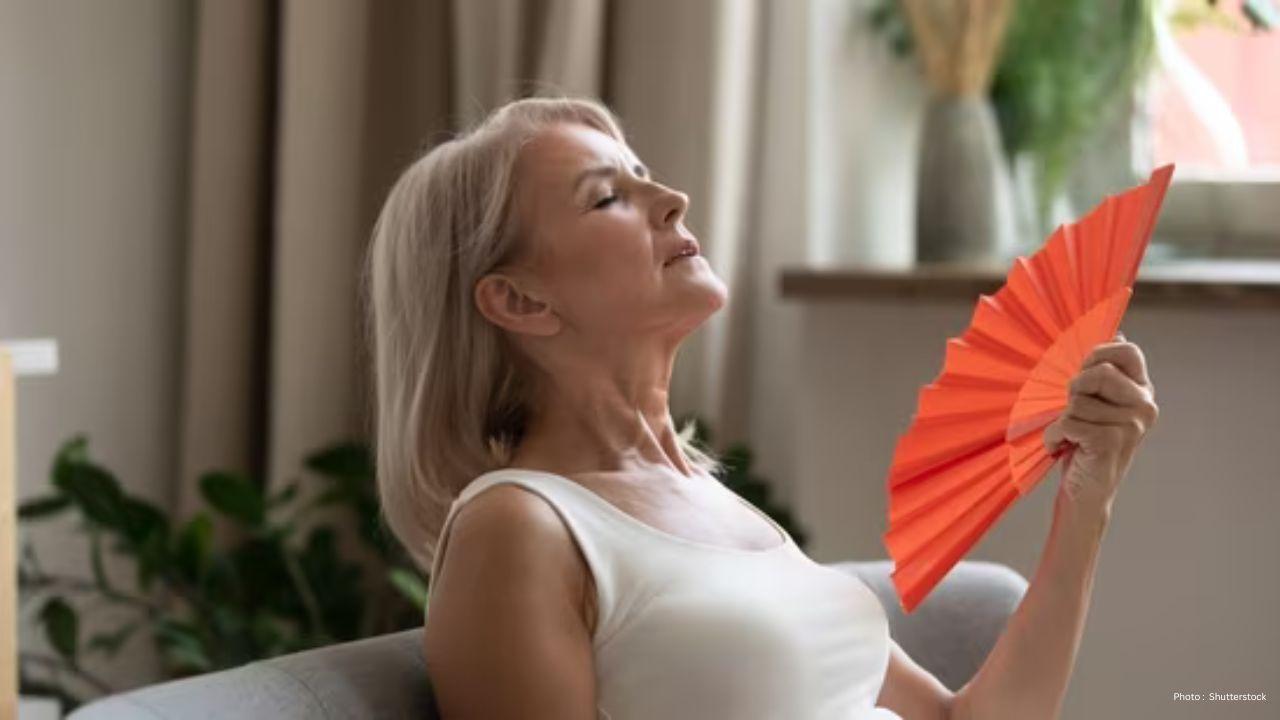
Post by : Saif Al-Najjar
A leading neurologist from Apollo Hospitals in Bengaluru has warned that women going through menopause face a higher risk of stroke due to major hormonal changes in the body. As the world observes World Stroke Day on October 29, the doctor’s message aims to raise awareness among women about early signs and ways to prevent this life-threatening condition.
Dr. Suryanarayana Sharma, a senior neurologist and stroke specialist, explained that menopause — a natural stage in every woman’s life — can trigger several changes that increase the chances of stroke. “The hormonal shifts, especially the drop in estrogen, play a key role,” he said. The risk, he added, is mostly related to ischemic strokes, which happen when a blood clot blocks the flow of blood to the brain.
According to the Centers for Disease Control and Prevention (CDC), stroke is one of the leading causes of death among women. The danger rises sharply between the ages of 55 and 75, which overlaps with the average age of menopause, between 45 and 55 years. This makes menopause an important non-modifiable risk factor — something that cannot be avoided but must be managed carefully.
Dr. Sharma explained that the decline in estrogen levels affects several systems in the body. Estrogen normally helps keep blood vessels soft and flexible, controls blood pressure, and protects against heart disease. When its levels fall, the arteries become stiff, blood pressure rises, and blood flow to the brain weakens, increasing stroke risk.
He said that other changes also occur after menopause. Good cholesterol, known as HDL, drops while bad cholesterol, called LDL, increases. This imbalance causes fatty buildup in the arteries, leading to blockages that may trigger a stroke. The loss of estrogen also increases inflammation in the body, which encourages blood clots to form more easily.
Metabolic problems like weight gain and insulin resistance are also common after menopause. These conditions can damage blood vessels and disturb the blood supply to the brain. In addition, the hormonal change activates another system in the body, causing the body to hold more salt and water, which leads to high blood pressure — one of the biggest stroke risks.
Dr. Sharma warned that women who experience menopause before the age of 40 face an even higher chance of stroke. Studies show that early menopause may raise the risk by about 1.6 times compared to women who reach menopause later in life.
The neurologist also listed some warning signs that should never be ignored. These include sudden weakness or numbness in the face, arms, or legs (especially on one side of the body), trouble speaking or understanding words, loss of balance, blurry vision, and a severe unexplained headache. “If any of these symptoms appear, the patient must be taken to a stroke-ready hospital immediately, within the golden hour,” he advised. The golden hour — the first 60 minutes after symptoms appear — is the best time to treat stroke and prevent long-term damage.
While menopause itself cannot be prevented, Dr. Sharma said that almost 90 percent of strokes can be avoided through lifestyle changes. Women are encouraged to check their blood pressure, sugar, and cholesterol regularly. A diet rich in fruits, vegetables, whole grains, and lean proteins helps keep blood vessels healthy. Regular physical activity, such as a 30-minute walk each day, also plays a major role in keeping the heart and brain strong. Avoiding smoking and limiting alcohol are equally important.
The neurologist also addressed the question of Hormone Replacement Therapy (HRT), a treatment that adds estrogen back to the body. He said that while HRT might help in some cases, it can also cause side effects, and women should only consider it under medical supervision. “Hormone therapy may reduce stroke risk, but it must be prescribed carefully,” he said.
Experts believe that awareness is the first step toward prevention. Menopause is a natural stage in life, but it requires more attention to heart and brain health. Understanding how hormones affect the body can help women take preventive steps before problems arise.
As World Stroke Day approaches, doctors are reminding women to stay alert to small changes in their health. Quick action, regular check-ups, and a balanced lifestyle can protect against stroke and ensure a healthier life after menopause.










Mitchell Marsh Backs Aggressive Plan Ahead of India T20 Series
Australia captain Mitchell Marsh says his team will continue playing fearless cricket as they prepar

Smriti Mandhana Becomes World’s No.1 ODI Batter
India’s Smriti Mandhana rises to No.1 in ICC Women’s ODI rankings with a career-best rating of 828 a

Suryakumar Yadav Focuses on Team Spirit and Fielding Goals
India captain Suryakumar Yadav stresses teamwork, energy, and stronger fielding efforts ahead of the

Sherwood Leads Canucks to Overtime Win Against Oilers
Kiefer Sherwood scored twice, including an overtime winner, as Vancouver Canucks defeated Edmonton O

Freeman Leads Dodgers to 6-5 Thriller Over Blue Jays
Freddie Freeman’s 18th-inning walk-off homer gives the Dodgers a thrilling 6-5 win over the Blue Jay

Bayern Target Another Victory in German Cup Match
Bayern Munich look to continue their perfect start to the season with a German Cup clash against Col